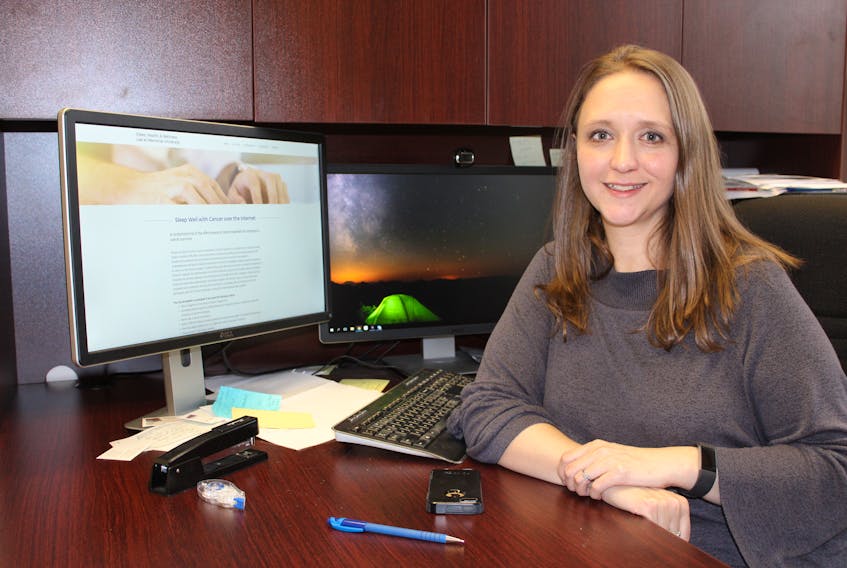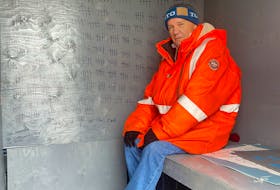Working your way through cancer is tough.
Navigating that journey with a host of other side effects is even tougher.
Studies have shown those being treated for cancer are prone to a variety of issues, including a high percentage of those suffering from insomnia.
Those cancer survivors have expressed interest in not popping a pill to help manage insomnia and turning instead to acupuncture and Cognitive Behavioral Therapy for Insomnia (CBT-I).
“Although insomnia is a common and debilitating disorder that affects up to 60 per cent of cancer survivors, it is under-recognized and under-treated,” Dr. Sheila Garland, a clinical psychologist and the director of Memorial University’s Sleep, Health and Wellness Lab said.
“Drug treatment for insomnia is not recommended long term and it can have a lot of side effects such as sedation, dependence and falls. Patients want to improve their sleep without the use of drugs,” she added.
This randomized trial, published last week in the Journal of the National Cancer Institute, compared eight weeks of acupuncture and CBT-I in 160 cancer survivors. Acupuncture involved stimulating specific points on the body with needles.
CBT-I included sleep restriction, stimulus control, cognitive restructuring, relaxation training, and education.
The study measured insomnia severity (primary outcome), pain, fatigue, mood, and quality of life post-treatment (eight weeks) with follow-up until 20 weeks.
The results demonstrated that CBT-I is more effective overall than acupuncture post-treatment.
It was also more effective for those who met certain criteria including being male, white, highly educated and who had no pain when they began the study. The benefits of acupuncture and CBT-I was comparable for those who are female or with lower education.
“CBT-I is the way to go. We know it works and it's durable,’’ Garland said, “But still many people don’t know what it is or just how effective it can be.”
“People are often unaware that there are things that they can do to help themselves sleep better’’ she added.
“First of all, you have to make sure your morning wake up time stays constant, even on weekends. This ensures you build sleep pressure during the day to help you fall asleep at night,’’ Garland said. “Sleeping in will make it more likely that you will have trouble falling asleep the following night”.
“By controlling this, it helps you to sleep better and deeper for a consolidated chunk of time.”
Secondly, she said it is key to ensure your bed is a place for just sleep, and not working, worrying, or being on your phone, computer, or tablet. Garland said if you repeatedly pair the bed with things other than sleep, your bed will eventually become conditioned to be associated with those things and not sleep.
“Changes that occur with CBT-I are gradual and people will see improvements in four to eight weeks. We first focus on improving sleep quality and then we increase sleep quantity to match the time that is adequate for them,’’ she added.
Trial is ground breaking
“Acupuncture was more effective than CBT-I for pain in the short term,” Garland said.
“However, both treatments had similar improvements for fatigue, mood, quality of life and reduced prescription hypnotic medication use,” she added.
This is the first head-to-head comparison trial of acupuncture vs. CBT-I for insomnia and the largest randomized trial of acupuncture for insomnia conducted in cancer survivors.
The most diverse group of cancer survivors was represented as previous trials mainly enrolled breast cancer survivors. Close to 30 per cent of the participants in this study were from minority groups and included people with many different types of cancer.
“People are often unaware that there are things that they can do to help themselves sleep better’’ she added “First of all, you have to make sure your morning wake up time stays constant, even on weekends. This ensures you build sleep pressure during the day to help you fall asleep at night,’’ Garland said. “Sleeping in will make it more likely that you will have trouble falling asleep the following night”.
Sleep well with cancer over the Internet
Almost one third of cancer survivors experience chronic insomnia, a condition that associated with fatigue, cognitive difficulties, mood disturbance, impaired functioning and a decreased quality of life.
Despite the prevalence and seriousness of insomnia in cancer survivors, the problem is underdiagnosed and poorly treated primarily due to the lack of available evidence-based interventions at cancer centres across Canada.
To address this issue, Garland and her team at Memorial University have partnered with the University of Ottawa to evaluate the effectiveness of an online treatment program for insomnia using two different programs looking to see if there are any potential short-term changes in things such as mood and sleep while participating in the online program.
The program will ask cancer survivors who have completed active treatment — and who have insomnia — to participate in the hope of enrolling 150 participants with 50 of these individuals coming from Newfoundland and Labrador.
You may be eligible to participate if you meet the following criteria:
- Have a diagnosis of any stage of cancer
- Completed active treatment (chemotherapy and radiation) at least one month prior (with the exception of hormone or maintenance therapies)
- Report difficulty falling or staying asleep that impacts your ability to function during the day.
- Have had sleep problems for at 3 nights per week for the past three months
- Have access to high-speed internet.
If you have been diagnosed with cancer and are interested in learning more about this, or any other treatment research opportunities, you are encouraged to contact [email protected] .
Source: Sleep, Health and Wellness Lab, Memorial University









